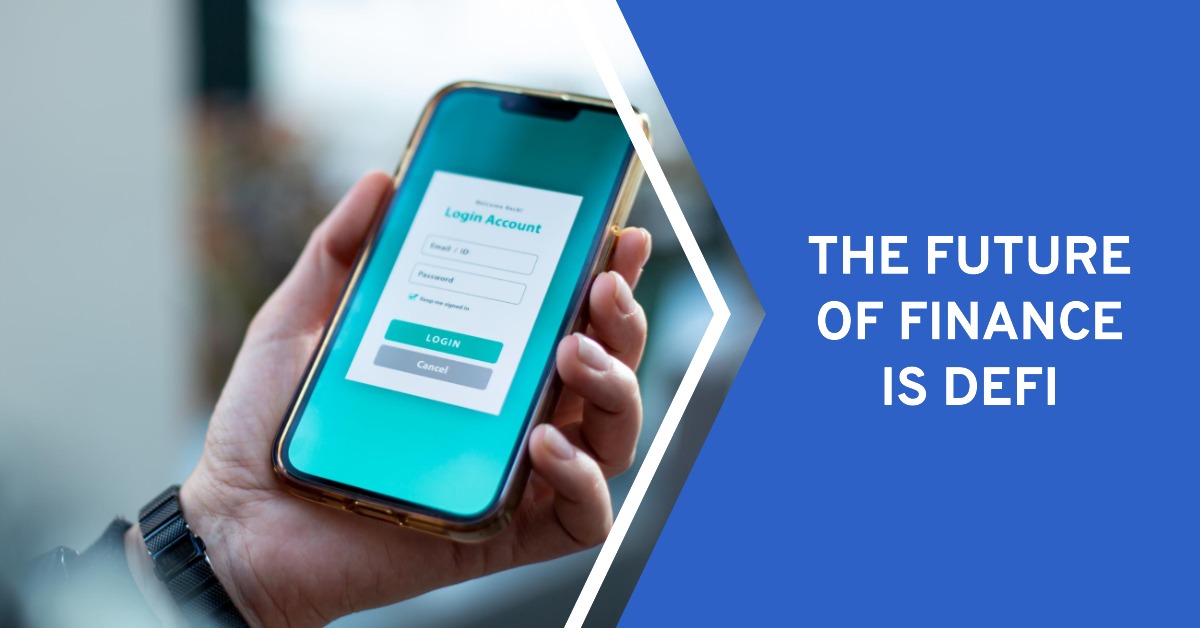Are you skeptical about the future of finance? You may be hesitant to embrace new technologies and concepts, but it’s time to consider the potential of DeFi.
Understanding DeFi: The Future of Finance is a comprehensive guide that will help you navigate this revolutionary space. DeFi, short for decentralized finance, is a financial system that operates on blockchain technology, offering transparency, security, and accessibility.
This guide will walk you through the benefits of DeFi, its various use cases, as well as the challenges and risks involved. By gaining a deeper understanding of DeFi, you’ll be better equipped to make informed decisions and potentially tap into the transformative power of decentralized finance.
What Is Defi
If you’re new to the world of decentralized finance (DeFi), you might be wondering what it’s exactly. DeFi refers to the use of blockchain technology and smart contracts to provide financial services without the need for intermediaries such as banks or brokers. It aims to create a more open and inclusive financial system that’s accessible to anyone with an internet connection.
One potential regulatory implication of DeFi is the challenge it poses to existing financial regulations. Traditional financial institutions are subject to a wide range of regulations aimed at ensuring stability, protecting consumers, and preventing illicit activities. However, DeFi operates outside of these traditional regulatory frameworks, which raises questions about how existing regulations can be applied to this new form of finance. Regulators are still grappling with how to address these challenges and strike the right balance between innovation and consumer protection.
The impact of DeFi on traditional financial institutions is also worth considering. As DeFi continues to gain popularity, it has the potential to disrupt traditional financial intermediaries such as banks and brokerage firms. By enabling peer-to-peer transactions and providing access to a wide range of financial services, DeFi has the potential to disintermediate traditional financial institutions and reduce their role in the financial system. This could result in significant changes to the industry landscape and the way financial services are delivered.
Understanding the intricacies of DeFi requires a comprehensive exploration of its various components, from decentralized exchanges to liquidity pools. Coin Spot Review acts as a reliable guide, offering in-depth analyses and user experiences to assist both novices and seasoned investors in navigating this dynamic ecosystem.
Benefits of DeFi
You can enjoy numerous benefits through DeFi.
One of the significant advantages is the impact it has on traditional banking. DeFi provides individuals with the opportunity to access financial services without relying on traditional institutions such as banks. This means that people who are unbanked or underbanked can now have access to various financial products and services.
Additionally, DeFi allows for greater financial inclusion by removing barriers such as high fees, complicated application processes, and geographical limitations.
Another benefit of DeFi is its potential to address regulatory concerns. The decentralized nature of DeFi platforms makes it challenging for regulators to control and monitor transactions. While this can raise concerns about potential risks and illegal activities, it also allows for financial freedom and privacy. However, as DeFi continues to grow, regulators are starting to recognize its importance and are working towards developing frameworks and guidelines to ensure the safety and security of users.
DeFi Use Cases
Explore the various use cases of DeFi across different sectors and industries. DeFi applications have the potential to disrupt traditional financial systems by providing decentralized alternatives that offer greater accessibility, transparency, and efficiency.
One of the most prominent use cases of DeFi is in the realm of lending and borrowing. DeFi lending platforms enable individuals and institutions to lend and borrow digital assets without the need for intermediaries such as banks. These platforms utilize smart contracts to automate the lending process, eliminating the need for manual approval and reducing the risk of default. By removing intermediaries, DeFi lending platforms can offer lower interest rates and higher returns for lenders, while borrowers can access funds more quickly and easily.
Another use case of DeFi is in the creation and trading of synthetic assets. Synthetic assets are digital representations of real-world assets, such as stocks, commodities, or fiat currencies, that can be traded on blockchain networks. DeFi protocols allow users to create and trade synthetic assets without the need for traditional financial institutions, providing greater accessibility and liquidity.
These are just a few examples of the potential use cases of DeFi across various sectors and industries. As the technology continues to evolve, we can expect to see even more innovative applications and solutions emerge in the DeFi space.
Challenges and Risks in DeFi
DeFi presents several challenges and risks that need to be addressed for its successful implementation in the future of finance.
One of the major concerns is regulatory oversight. As DeFi operates on a decentralized and permissionless network, it becomes difficult for regulatory bodies to monitor and enforce compliance. This can lead to potential scams, fraud, and money laundering activities going undetected. To ensure the long-term sustainability of DeFi, it’s crucial to establish a regulatory framework that balances innovation and investor protection.
Scalability is another significant challenge in DeFi. The current infrastructure of blockchain networks, such as Ethereum, struggles to handle the increasing demand and volume of transactions. This results in high fees and slow confirmation times, limiting the scalability of DeFi applications. Solving scalability issues is crucial to attract more users and increase the adoption of DeFi in mainstream finance.
Additionally, the smart contracts that power DeFi aren’t immune to vulnerabilities. Any bugs or vulnerabilities in the code can lead to financial losses for users. Auditing and testing of smart contracts become paramount to mitigate such risks.
The Future of DeFi
The future of DeFi holds immense potential for revolutionizing the finance industry, offering an unprecedented level of accessibility and opportunity for individuals and businesses alike. As DeFi applications continue to evolve and mature, the adoption of decentralized finance is expected to increase significantly.
One of the key advantages of DeFi is its ability to provide financial services without the need for intermediaries, such as banks or brokers. This means that individuals and businesses can access a wide range of financial products and services directly, without relying on traditional institutions. This increased accessibility opens up new opportunities for individuals who may have previously been excluded from the traditional financial system.
Furthermore, DeFi applications have the potential to greatly improve financial efficiency and transparency. With smart contracts and blockchain technology, transactions can be executed automatically and securely, eliminating the need for manual verification and reducing the risk of fraud. Additionally, the transparent nature of blockchain allows for easy auditing and verification of transactions, promoting trust and accountability.
As more individuals and businesses recognize the benefits of DeFi, we can expect to see a significant increase in its adoption. This increased adoption won’t only lead to a more inclusive and efficient financial system but also spur further innovation in the DeFi space. The future of DeFi is bright, and it’s poised to disrupt the traditional finance industry in profound ways.
Conclusion
As you delve into the world of DeFi, you embark on a journey of endless possibilities. The decentralized nature of this financial revolution empowers individuals like never before, providing them with the freedom to transact, lend, and invest without intermediaries.
However, amidst the excitement, one must remain vigilant of the challenges and risks that accompany this new frontier. With careful navigation and an unwavering commitment to security, the future of DeFi holds immense potential to transform the way we interact with finance, unlocking a world of innovation and opportunity.




